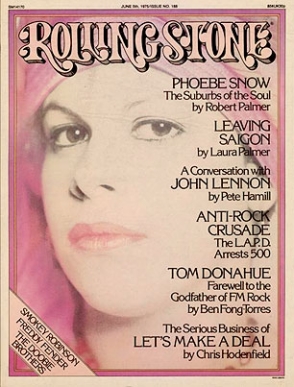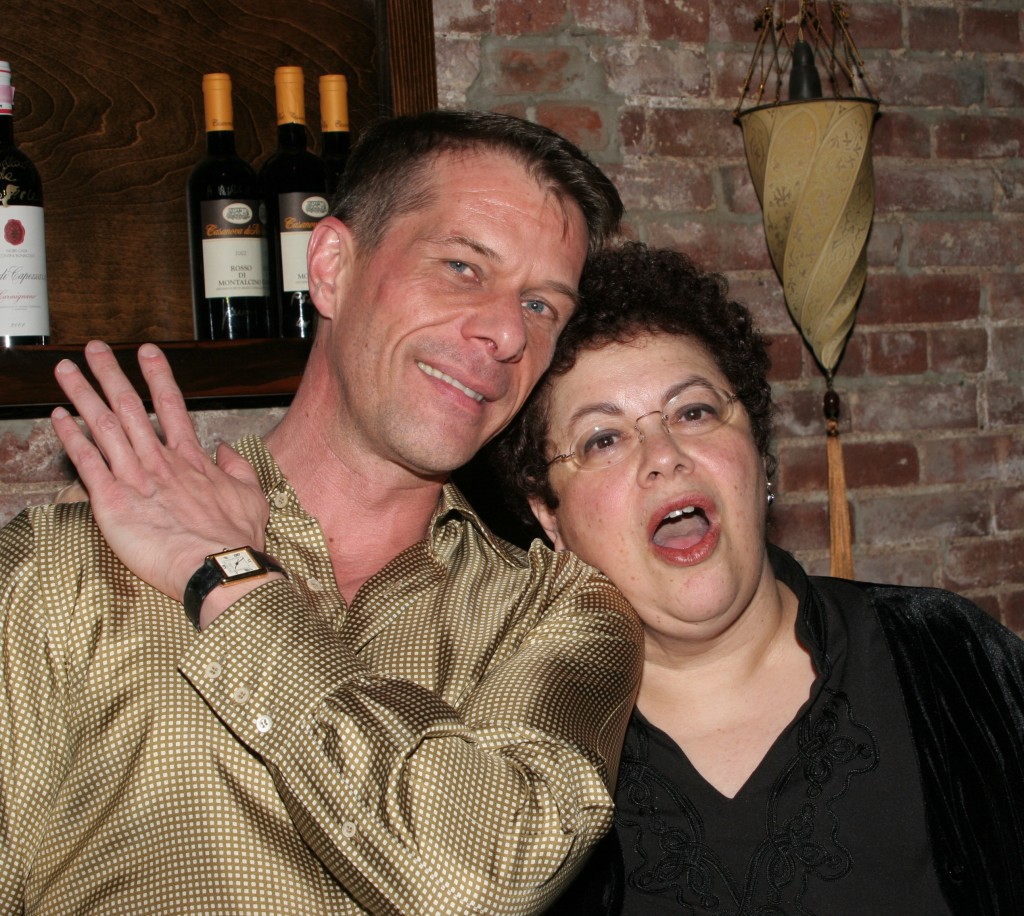I was deeply saddened to hear that Phoebe Snow died today. She was 60. Here’s UPI’s account:
 NEW YORK, April 26 (UPI) — Recording artist Phoebe Snow died in her native New York Tuesday from complications of a massive stroke she suffered last year, her manager said.
NEW YORK, April 26 (UPI) — Recording artist Phoebe Snow died in her native New York Tuesday from complications of a massive stroke she suffered last year, her manager said.
The author of more than 100 songs is best known for her 1975 hits, “Poetry Man” and “Harpo’s Blues.”
Some of her other songs include “Gone at Last,” “Shakey Ground,” “Every Night,” “Games,” “Mercy, Mercy, Mercy,” “Dreams I Dream,” “If I Can Just Get Through the Night” and “Something Real.”
Snow put her career on the back burner for years while she cared for her daughter, Valerie, who was born severely brain damaged. Valerie died in 2007 at the age of 31.
“[Phoebe Snow] fought for almost a year-and-a-half to come back, enduring bouts of blood clots, pneumonia, and congestive heart failure, each time coming out of it, until her body finally could take it no more,” her manager, Sue Cameron, told CNN Tuesday.
At the time of her January 2010 stroke, Snow had recently recorded new songs and planned a series of live concerts, Cameron said.
I met Phoebe shortly after Valerie died and found her to be one of the warmest, most sensitive, and perceptive people I had ever encountered. I remember talking about how life is full of hellos and good byes.
Most remember Phoebe Snow for her mellow, soft melodies, like “Poetry Man”. But she was much more than that. In a 1975 Rolling Stone cover story, Robert Palmer writes:

But just listen to her voice, they were whispering excitedly to each other, it’s, like, incredible. And it was-a natural wonder of a voice, soaring as high as Minnie Riperton’s and descending to a butch quasi-bass, capable of apparently infinite textural variation, from the gauziest of wisps to the balkiest of bellows, an obvious once-in-a-generation voice from the first note and an astoundingly artless-sounding voice as well. Leaping one and two octaves, floating through difficult chord patterns and hitting the most difficult intervals smack on target suddenly sounded as easy as singing “Frere Jacques” in grade school.
Plus, as Caroline Kennedy was heard to remark after Phoebe’s one-night stand at New York’s Bottom Line, “She was real.” Somehow, after breeding hordes of singers who could only equate soul with blackface travesties of old blues or new R&B, suburbia had finally produced an honest soul style all its own. Phoebe sang with a gripping emotional intensity and she didn’t have to ape black mannerisms to do it. It seemed to come naturally and how did she pull it off?
.
.
But the world would not hear Phoebe Snow’s voice for long:
When Valerie was born with major complications and at the height of Snow’s fame, Snow decided to dedicate the majority of her time caring for her rather than pursuing her blossoming music career. A major life and career decision – caring for Valerie would take up every last ounce of her energy. What could have been an easy ride had turned into a lifetime of frustrating struggle driven by unconditional love.
A year after “Poetry Man” was recorded, Phoebe gave birth to a daughter, Valerie Rose, who was severely brain-damaged. Her husband split from her soon after the baby was born. But at a time when many disabled children were sent to institutions, she decided to keep her daughter at home and care for the child herself.
“She was my universe,” Snow tells me on a rare good day, when she’s not experiencing eight-hour crying sessions or stomping her feet on the floor and demanding her daughter back. “She was the nucleus of everything. I used to wonder, am I missing something? No. I had such a sublime, transcendent experience with my child. She had fulfilled every profound love and intimacy and desire I could have ever dreamed of.”
Further Reading:
- The New York Times: Phoebe Snow, Bluesy Singer-Songwriter, Dies at 60
- San Francisco Chronicle: Phoebe Snow, ‘Poetry Man’ singer, dies at 60
- Pop Entertainment: Phoebe Snow – Make Things All Right
- CNN: ‘Poetry Man’ singer-songwriter Phoebe Snow has died
- Rolling Stone: Phoebe Snow Finds the Suburbs of the Soul: Rolling Stone’s 1975 Cover Story
